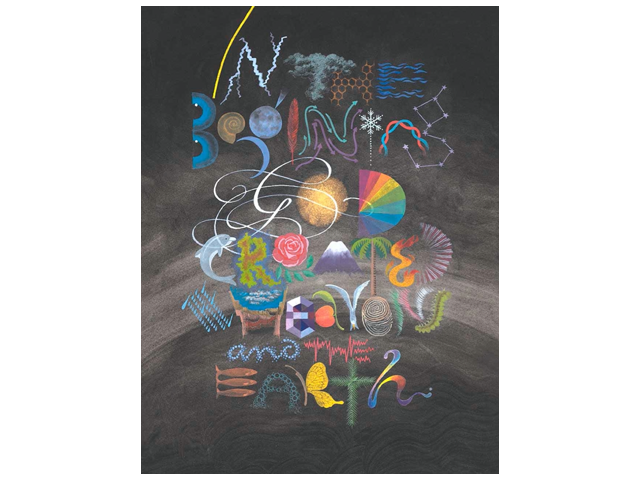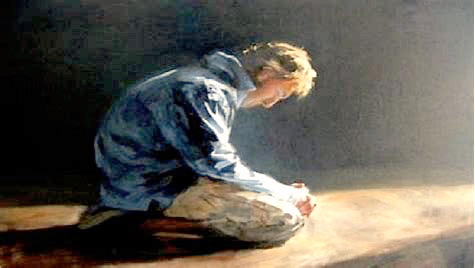Lesson 1
Posted on 29. Jan, 2021 by Don007 in Uncategorized

The Making of a Chaplain
By Pastors Don and Sharon Henning, D. Th
So we have stopped evaluating others from a human point of view. At one time we thought of Christ merely from a human point of view. How differently we know him now! This means that anyone who belongs to Christ has become a new person. The old life is gone; a new life has begun!
And all of this is a gift from God, who brought us back to himself through Christ. And God has given us this task of reconciling people to him. For God was in Christ, reconciling the world to himself, no longer counting people’s sins against them. And he gave us this wonderful message of reconciliation. So we are Christ’s ambassadors; God is making his appeal through us. We speak for Christ when we plead, “Come back to God!” For God made Christ, who never sinned, to be the offering for our sin, so that we could be made right with God through Christ. 2 Corinthians 5:16-21 NLT
Published by Drs. Don & Sharon Henning, D.Th., BCC, BCTC
The following abbreviations are used to identify versions of the Bible used in these 15 Candidate volumes.
NIV Unless otherwise indicated, scripture quotations are from the New International Version. Copyright 1973, 1978, 1984 by International Bible Society. Used by permission of Zondervan Bible Publishers, Inc. Grand Rapids, Michigan 49530. All rights reserved.
NLT New Living Translation, Handbook of Bible Application Notes and Life Application Study Bible Notes are copyright 1996, used by permission of Tyndale House Publishers, Inc. Carol Stream, Illinois 60188. All rights reserved.
Nouns and pronouns referring to deity are capitalized throughout the text of these 15 textbooks unless they are included within a direct quotation, in which case the original capitalization is retained.
The purpose of the 15 Candidate textbooks of The Making of a Chaplain is to teach and train Community Chaplains. The Chaplain is trained to minister to the needs of the community to which they have been assigned. They work in cooperation with local churches, civic organizations, government organizations, hospitals, rape crisis centers and others who give care to those in need. Chaplains will occupy and minister in every zip code in this nation.
We have tried to locate and secure permission for the inclusion of all copyright material in these 15 Candidate textbooks of The Making of a Chaplain. If any such acknowledgements have been inadvertently omitted, we would appreciate receiving the information so that proper credit may be given in any future printings.
Copyright © 2021 by Love Never Fails a 501c3 nonprofit Arizona corporation which is formed for the purposes of conducting faith-based education and training of Chaplains.
All rights reserved
Printed in the United States of America
CREATION Lesson 1
THE FALL Lesson 2
THE KINGDOM Lesson 3
KINGDOM LIVING Lesson 4
HEAVEN Lesson 5
JESUS Lessons 6 to 8
HOLY SPIRIT Lessons 9 to11
HOLY BIBLE Lessons 12 to14
LOVE Lessons 15 to 17
WORSHIP Lesson 18
PRAYER Lesson 19 & 20
TEN FOUNDATIONAL TEACHINGS
Because of God’s grace to me, I have laid the foundation like an expert builder. Now others are building on it. But whoever is building on this foundation must be very careful. For no one can lay any foundation other than the one we already have—Jesus Christ. Anyone who builds on that foundation may use a variety of materials—gold, silver, jewels, wood, hay, or straw. But on the judgment day, fire will reveal what kind of work each builder has done. The fire will show if a person’s work has any value. If the work survives, that builder will receive a reward. But if the work is burned up, the builder will suffer great loss. The builder will be saved, but like someone barely escaping through a wall of flames. Don’t you realize that all of you together are the temple of God and that the Spirit of God lives in you? God will destroy anyone who destroys this temple. For God’s temple is holy, and you are that temple. 1 Corinthians 3:10-17 NLT

Lesson 1 – The God of Creation
The creation story teaches us much about God the Father, and about ourselves
Worship takes our minds off our problems and focuses them on God. Worship leads us from individual meditation to corporate worship. Worship causes us to consider and appreciate God’s character. Worship lifts our perspective from the earthly to the heavenly.
[su_youtube url=”https://youtu.be/794FwJUWhdY” title=”Worship Song by Hillsong United”]
PRAYER
Holy Spirit to teach ME and lead ME into all truth. give ME insight and understanding about GOD THE FATHER OF CREATION. WHeN I finish THIS lesson, permanently seal the truths YOU haVE revealed TO ME in MY spirit and soul.
I PRAY THIS IN JESUS NAME
THEME SCRIPTURE
In the beginning God created the heavens and the earth. Now the earth was formless and empty, darkness was over the surface of the deep, and the Spirit of God was hovering over the waters. Gen. 1:1-2
[su_youtube url=”https://youtu.be/uzkOUMacol0″ title=”God of Wonders – POWER – 13 min. Video by Eternal Productions”]
13 Min. video by Eternal Productions
The creation story teaches us much about God the Father, and about ourselves.
First, we learn about God the Father
1. He is creative
2. As the Creator, He is distinct from His creation
3. He is eternal and in control of the world.
We also learn about ourselves
1.Since God the Father chose to create us, we are valuable in his eyes
2. We are more important than the animals
Genesis 1:1 makes the simple statement that God created the heavens and the earth is one of the most challenging concepts confronting the modern mind. The vast galaxy we live in is spinning at the incredible speed of 490,000 miles an hour. But even at this breakneck speed, our galaxy still needs 200 million years to make one rotation. And there are over one billion other galaxies just like ours in the universe.
Some scientists say that the number of stars in creation is equal to all the grains of all the sands on all the beaches of the world. Yet this complex sea of spinning stars functions with remarkable order and efficiency. To say that the universe “just happened” or “evolved” requires more faith than to believe that God is behind these amazing statistics. God truly did create a wonderful universe.
God the Father did not need to create the universe; he chose to create it. Why? God is love, and love is best expressed toward something or someone else—so God created the world and people as an expression of his love. We should avoid reducing God’s creation to merely scientific terms. Remember that God created the universe because he loves us.
[su_youtube url=”https://youtu.be/sDi0SwUwONs” title=”8 min video by Eternal productions”]
8 Min. video by Eternal Productions
Just how did God the Father create the earth? This is still a subject of great debate. Some say that with a sudden explosion, the universe appeared. Others say God started the process and the universe evolved over billions of years. Almost every ancient religion has its own story to explain how the earth came to be. And almost every scientist has an opinion on the origin of the universe. But only the Bible shows one supreme God creating the earth out of His great love and giving all people a special place in it. We will never know all the answers to how God created the earth, but the Bible tells us that God did create it. That fact alone gives worth and dignity to all people.
Who created God the Father? To ask that question is to assume there was another creator before God. At some time, however, we are forced to stop asking that question and realize that there had to be something that has always existed. God is that infinite Being who has always been and who was created by no one. This is difficult to understand because finite minds cannot comprehend the infinite. For example, we can try to think of the highest number, but we can’t do it. Likewise, we must not limit the infinite God by our finite understanding.
[su_youtube url=”https://youtu.be/h4su7CBy5Ms” title=”10 min video by Eternal productions”]
10 Min. video by Eternal Productions
God the Father is revealed in the Bible as an infinite, eternal, self existent Being who is the First Cause of all that is. Never was there a moment when God did not exist. As Moses affirms, “Before the mountains were born or you brought forth the earth and the world, from everlasting to everlasting you are God” (Ps 90:2). In other words, God existed eternally and infinitely before creating the finite universe. He is above, independent of and prior to all that has been created in heaven and on earth (Col 1:16).
God the Father is revealed as a personal Being who created Adam and Eve “in His own image” (Ge 1:27). Because Adam and Eve were created in God’s image, they could respond to and have fellowship with God in a loving and personal way.
God the Father is also revealed as a moral Being who created everything good and therefore without sin. After God had finished creating and was surveying what he had made, he observed that it was “very good” (Ge 1:31). Since Adam and Eve were created in God’s image and likeness, they were also without sin. Sin entered human existence when Eve was tempted by the serpent, or Satan (Ro 5:12; Rev 12:9).
UNIQUE ATTRIBUTES OF GOD
God the Father is omnipresent, He is present everywhere at the same time. The psalmist states that no matter where we go, God is there (Ps 139:7-12; cf. Jer 23:23-24; Ac 17:27-28); God observes everything that we do.
God the Father is omniscient, He knows everything (Ps 139:1-6; 147:5). He knows not only our actions but also our very thoughts (1Sa 16:7; 1Ki 8:39; Ps 44:21; Jer 17:9-10). When the Bible speaks of God’s foreknowledge (Isa 42:9; Ac 2:23; 1Pe 1:2), it means that He knows all things possible as possible, all things certain as certain, all things contingent as contingent, all things future as future, all things past as past, all things foreordained as predestined certainties (cf.1Sa 23:10-13; Jer 38:17-20). Biblical fore knowledge does not entail philosophical determinism. God remains free to make decisions and alter His purposes in time and history, according to His own will and wisdom. In other words, God is not a prisoner of His own fore knowledge.
God is omnipotent, He is all-powerful and has ultimate authority over all things and all creatures (Ps 147:13-18; Jer 32:17; Mt 19:26; Lk 1:37). This doesn’t mean, however, that God uses all His power and authority at all times; for example God has the power to destroy all sin, but He has chosen not to do so until the end of history. In many cases, God limits his power, channeling it through His people (2Co 12:7-10); in these cases, His power is dependent on our degree of availability and submission to Him.
God is transcendent, He is different and independent from His creation (see Ex 24:9-18; Isa 6:1-3; 40:12-26; 55:8-9). His being and existence are infinitely greater and higher than the created order (1Ki 8:27; Isa 66:1-2; Ac 17:24-25). He dwells in perfect and pure existence, far above what he has made; He Himself is uncreated and exists apart from creation. Transcendence does not entail, however, that God is incapable of living among His people as their God. (Lev 26:11-12; Eze 37:27; 43:7; 2Co 6:16).
God is eternal, Hhe is from everlasting to everlasting (Ps 90:1-2; 102:12; Isa 57:15). There was never a time, either in the past or the future, when God did not or will not exist; He is not bound by human time (cf. Ps 90:4; 2Pe 3:8) and is, therefor best described as “I am” (cf. Ex 3:14; Jn 8:58).
God is unchangeable, there is no change in God’s attributes, in His perfections or in His purpose for humankind (Nu 23:19; Ps 102:26-28; Isa 41:4; Mal 3:6; Heb 1:11-12; Jas 1:17); this doesn’t mean, however, that God never alters His temporary purposes in response to the actions of humans. He may, for example, alter His intentions of judgment because of the sincere repentance of sinners (cf. Joh 3:6-10). Furthermore He remains free to respond to the needs of human beings and to the prayers of His people. The Bible often speaks of God changing His mind as a result of the diligent prayers of the righteous (e.g., Nu 14:1-20; 2Ki 20:2-6; Isa 38:2-6; Lk 18:1-8.
God is perfect and holy, He is completely without sin and absolutely righteous (Lev 11:44-45; Ps 85:13; 145:17; Mt 5:48). Adam and Eve were created without sin (cf. Ge 1:31) but with the capability of sinning. God, on the other hand, cannot sin (Nu 23:19; 2Ti 2:13; Tit 1:2; Heb 6:18). His holiness also includes His dedication to carrying out His purposes and plan.
God is triune, He is one God (Dt 6:4; Isa 45:21; lCo 8:5-6; Eph 4:6; lTi 2:5), who has manifested Himself in three divine persons: Father, Son and Holy Spirit (e.g.,Mt 28:19; 2Co 13:14;1Pe 1:2). Each person is fully divine, equal with the other two; yet they are not three Gods, but one.
MORAL ATTRIBUTES OF GOD THE FATHER
Many characteristics of the one true God, particularly His moral attributes, bear similarity to human qualities; however, His attributes all exist to a degree incomparably greater than they do in us. For example, even though both God and humans possess the ability to love, no human is able to love to the degree and intensity that God does. Moreover, it must be stressed that our ability to exercise these characteristics is related to our being created in God’s image (Ge 1:26-27); in other words, we are like Him, not He like us.
God is good (Ps 25:8; 106:1; Mk 10:18). All that God originally created was good, an extension of His own nature (Ge 1:4,10,12,18,21,25,31). He continues to be good to His creation by sustaining it on behalf of all His creatures (Ps 104:10-28; 145:9) He even provides for the ungodly (Mt 5:45; Ac 14:17). God is especially good to His people who call on Him in truth (Ps 145:18-20).
God is love (1Jn 4:8). His love is a selfless love that embraces the entire world of sinful humankind (Jn 3:16; Ro 5:8). The chief expression of that love was his sending of His only Son Jesus to die for sinners (1Jn 4:9-10). In addition, God has a special family love for those who through Jesus are reconciled to Him.
God is merciful and gracious (Ex 34:6; Dt 4:31; 2Ch 30:9; Ps 103:8; 145:8; Joel 2:13); he does not cut off and destroy humanity as our sins deserve (Ps 103:10), but offers forgiveness as a free gift to be received through faith in Jesus Christ (Ps 103:11- 2; Ro 6:23; lCo 1:3-4; Eph 2:8-9; Tit 2:11; 3:4-5).
God is compassionate (2Ki 13:23; Ps 86:15; 111:4). To be compassionate means to feel sorrow for someone else’s suffering, with a desire to help. Out of His compassion for humanity, God provided forgiveness and salvation (cf. Ps 78:38); likewise, Jesus, the Son of God, showed compassion for the crowds when He preached the gospel to the poor, proclaimed freedom for the prisoners and recovery of sight for the blind, and released the oppressed (Lk 4:18; cf. Mt 9:36; 14:14; 15:32; 20:34; Mk 1:41)
God is patient and slow to anger (Ex 34:6; Nu 14:18; Ro 2:4; 1Ti 1:16). God first expressed this characteristic in the Garden of Eden after Adam and Eve’s sin, when He did not destroy the human race as He had a right to do (cf. Ge 2:16-17). God was also patient in the days of Noah, while the ark was being built (1Pe 3:20). And God is still patient with the sinful human race; He does not presently judge so as to destroy the world, because He is patiently giving everyone the opportunity to repent and be saved (2Pe 3:9).
God is truth (Dt 32:4; Ps 31:5; Isa 65:16; Jn 3:33). Jesus called Himself “the Truth” (Jn 14:6), and the Spirit is known as the “Spirit of truth” (Jn 14:17; cf. 1Jn 5:6). Because God is entirely trustworthy and true in all He says and does, His word is also described as truth (2Sa 7:28; Ps 119:43; Isa 45:19; Jn 17:17). In keeping with this fact, the Bible makes it plain that God does not tolerate lies or falsehood of any kind (Nu 23:19; Tit 1:2; Heb 6:18).
God is faithful (Ex 34:6; Dt 7:9; Isa 49:7; La 3:23; Heb 10:23); God will do what he has revealed in his Word, carrying out both His promises and His warnings (Nu 14:32-35; 2Sa 7:28; Job 34:12; Ac 13:23,32-33) . God’s faithfulness should bring unspeakable comfort to believers and great fear of judgment to all who do not repent and believe in the Lord Jesus (Heb 6:4-8; 10:26-31).
Homework Questions (21 questions in Lesson 1)
- 1. How is Creation speaking to those who listen?
- 2. How is God’s power displayed in His creation of the Universe?
- 3. How many stars are in the Universe?
- 4. What is the size of the Universe?
- 5. Does the Bible confirm the facts of the Universe? How?
- 6. How much energy is in the Universe?
- 7. How does snow crystals and DNA show the wisdom of God
The Activity of Creation
How long did it take God to create the world?
There are two basic views about the days of creation:
(1) Each day was a literal 24-hour period;
(2) each day represents an indefinite period of time
(even millions of years).
The Bible does not say how long these time periods were. The real question, however, is not how long God took, but how He did it. God created the earth in an orderly fashion (He did not make plants before light), and He created men and women as unique beings capable of communication with Him. No other part of creation can claim that remarkable privilege. It is not important how long it took God to create the world, whether a few days or a few billion years, but that He created it just the way He wanted it.
Days of Creation
First Day Light (so there was light and darkness)
Second Day Sky and water (waters separated)
Third Day Land and seas (waters gathered); vegetation
Fourth Day Sun, moon, and stars (to govern the day and the night and to mark seasons, days and years)
Fifth Day Fish and birds (to fill the waters and the sky)
Sixth Day Animals (to fill the earth)Man and woman (to care for the earth and to commune with God)
Seventh Day God rested and declared all He had made to be very good
[su_youtube url=”https://youtu.be/RKANLp_PgZM” url=”https://youtu.be/RKANLp_PgZM” title=”The Origin of God and Creation 15 min video by Pat Robertson CBN”]
15 Min. video by Pat Robertson CBN
God created all things in “the heavens and the earth”. The word “created” (Heb bara’) is used exclusively of an activity that only God can do. It means that at a specific, moment God called into existence matter and substance that had no prior existence.
The Bible describes God’s creation as formless, empty and covered with darkness
(Ge 1:2). At that time the universe and the world did not have the ordered form it has now. It was empty, barren of all living creatures and void of all light. After this initial stage, God created light to dispel the darkness (Ge 1:3-5), gave form to the universe (Ge 1:6-13) and filled the earth with living things (Ge 1:20-28).
The method God used in creation was the power of his word. Over and over it is stated, “And God said . . .” (Ge 1:3,6,9,11,14,20,24,26). In other words, God spoke the heavens and the earth into being; before God’s creative word went forth, they had no prior existence (cf. Ps 33:6,9; 148:5; ISa. 48:13; Ro 4:17; Heb 11:3).
The entire Trinity, not just the Father, had a role in creation.
- The Son Himself is the powerful Word through whom God created all things. In the prologue to John’s Gospel, Christ is revealed as the eternal Word of God (Jn 1:1). “Through Him all things were made; without Him nothing was made that has been made” Jn 1:3. Likewise, the apostle Paul affirms that by Christ “all things were created: things in heaven and on earth, visible and invisible . . . all things were created by Him and for Him” Col 1:16. Finally, the author of the letter to the Hebrews asserts emphatically that by His Son, God made the universe (Heb 1:2).
(b) Likewise, the Holy Spirit had an active role in the work of creation. He is the “power” and is pictured as “hovering” over the creation, preserving and preparing it for God’s further creative activity. The Hebrew word for “Spirit” (ruah) may also be translated as “wind” and “breath.” Thus, the psalmist affirms the role of the Spirit when he states: “By the word of the Lord were the heavens made, their starry host by the breath [ruah] of his mouth” Ps 33:6. Also, the Holy Spirit continues to be involved in sustaining creation (Job 33:4; Ps 104:30).
THE PURPOSE AND GOAL OF CREATION
God the Father had specific reasons for creating the world.
God created the heavens and the earth as a manifestation of His glory, majesty and power. David says, “The heavens declare the glory of God; the skies proclaim the work of His hands” (Ps 19:1; cf. Ps 8:1). By looking at the entire created cosmos from the immense expanse of the created universe to the beauty and order of nature we cannot help but stand in awe of the majesty of the Lord God, our Creator.
God created the heavens and the earth in order to receive back the glory and honor due Him. All the elements of nature-e.g., sun and moon, trees of the forest, rain and snow, rivers and streams, hills and mountains, animals and birds–shout out praise to the God who made them (Ps 98:7-8; 148:1-10; Isa, 55:12). How much more God desires and expects to receive glory and praise from human beings!
God created the earth in order to provide a place where His purpose and goals for humankind might be fulfilled.
(a) God created Adam and Eve in His own image so that He could have a loving, personal relationship for all eternity. God designed humankind as a triune being (body, soul, spirit), possessing mind, emotion and will with which they can respond to Him freely as Lord and worship and serve Him out of faith, loyalty and gratitude.
(b) God so desired this intimate relationship with the human race that, when Satan succeeded in tempting Adam and Eve to rebel against and disobey God’s command, He promised to send a Savior to redeem humankind from sin’s consequences (see Ge 3:15,). In this way God would have a people for His own possession who would enjoy Him, glorify him, and live in righteousness and holiness before Him (Isa 60:21; 61:l-3; Eph 1:11-12; lPe 2:9).
(c) The culmination of God’s purpose in creation is recorded in the book of Revelation, where John describes the end of history with these words: “He will live with them. They will be His people, and God Himself will be with them and be their God” Rev 21:3.
How Did Life Begin?
[su_youtube url=”https://youtu.be/WoBTLU_Edv8″ title=”10 min video by Lee Strobel, Case for a Creator”]
10 Min. video by Lee Strobel, CASE FOR A CREATOR
CREATION AND EVOLUTION
Evolution is the predominant view regarding the origin of life and the universe proposed in the scientific and educational community of the contemporary world. Bible-believing Christians should consider these four observations about evolution.
Evolution is a naturalistic effort to account for the origin and development of the Universe. This view begins with the assumption that there is no personal, divine Creator who made and fashioned the world; rather, everything came into existence by a series of chance happenings that occurred over billions of years. Proponents of evolution claim to have scientific data that support their hypothesis.
The teaching of evolution is not truly scientific. According to the scientific method, all conclusions must be based on indisputable evidence gathered from experiments that can be duplicated in any laboratory. However, no experiments have been or can be devised to test and substantiate theories about the origin of matter from some supposed “big bang” beginning or about the gradual development of living beings from their simplest to their most complex form. Consequently, evolution is a hypothesis without scientific “evidence”; therefore, to accept it one must have faith in a human theory. The faith of God’s people, in contrast, is in the Lord and in His inspired revelation, which states that He is the One who made all things out of nothing (Heb 11:3).
It is undeniable that change and development within various species of living things occur. For example, some varieties of species are becoming extinct; on the other hand, we occasionally see new strains forming within species. But there is no evidence, even in the geologic record, which supports the theory that one kind of living thing ever evolved from another kind. Rather, existing evidence supports the Bible’s declaration that God created each living creature “according to its kind”
(Ge 1:21,24-25).
Bible-believing Christians must also reject the theory called theistic evolution. This theory adopts most of the conclusions of naturalistic evolution, adding only that God started the evolutionary process. Such a theory denies the Biblical revelation that ascribes to God an active role in all aspects of creation. For example, every main verb in Genesis 1 has God as its subject, except for Ge 1:12 (which fulfills the command of God in v. 11) and the recurring phrase “there was evening, and there was morning,” God is not a passive supervisor of an evolutionary process; rather, He is the active Creator of all things (cf. Col 1:16).
SOURCE: Full Life Study Notes, copyright 1992 by Life Publishers International And Life Application notes
Questions (continued)
- 8. How are we fearfully and wonderfully made?
- 9. Is evolution even possible? Explain Your Answer.
- 10. How much faith would it take to believe in the evolution process?
Truths about Humanity
Man is created in the image of God 1:26-27. Man is the last creative work of God in the creation story.
Man is the crown jewel of God’s creation. Why? Because he is created in the image of God.
What does it mean to be created in the image of God?
Emotional capacity to feel. God is an emotional God. Scientists tell us that all mammals have the capacity to feel.
Rational capacity to think. Reason. Draw conclusions from data.
Volitional capacity to choose. Conscience. Only humans have free will to choose.
Spiritual capacity to worship. Every human has a desire to worship. They worship their gods…money, career, relationships, football, hobby, their creator. Romans 1:21-23. The problem is that man has chosen to worship created things rather than his creator.
Questions(continued)
- 11. What does the truth about Humanity, reveal about the value of human life?
- 12. What does it mean that “eternity has been put in the heart of every
- person” (Ecc. 3:11)?
- 13. What are some ways people worship created things rather than their creator?
MAN IS CREATED TO MIRROR GOD’S IMAGE
Creation exists for man.
God made man like Himself.
Man’s dominion over the world and filling the world is a display- an imaging forth- of God.
We were created to mirror God. The exalted status of man is to mirror God, not to become arrogant and autonomous. That is what happened at the fall. Man exists to reflect the glory of God to the world. Isaiah 43:7″ …whom I created for my glory.”
The world is not man centered, it is God centered. The result: very good. This is the key to understanding our purpose why we are here. Everything else flows out of this.
Glory of God__seen in Christ__reflected in us 2 Corinthians 3:17-18
Questions (continued)
- 14. In what ways do we mirror God’s image to the world?
- 15. What happens when we do not fulfill our divinely appointed purpose?
GOD GAVE HUMANS THREE PRIMARY ROLES
To the man: ruler over the earth- Genesis 1:28, 2:15.
Man is given dominion or authority over the earth: subdue the earth, subdue the planet, care for the garden, and name the animals.
The God given desire in every man is to build something great, to compete, to win, to accept a challenge. Man is the builder, warrior, hunter, and provider. Every man has the desire to be king of his little kingdom. Our culture and sometimes the church destroys this in a man.
Questions (continued)
- 16. In what ways does our culture sabotage biblical manhood?
Manhood is in a state of confusion .
Our culture offers no compelling vision of manhood. look at sitcoms and how they portray men. There are few role models on how to be a man. So men are confused. They don’t know where to find out about manhood because we have left the word of God.
Confused men make major mistakes.
Confused men settle for less.
Questions (continued)
- 17. What can Christianity do to reclaim masculinity in our men?
To the woman: nurturer of the family Genesis 2:18-23.
The woman was created to provide a solution to man’s capacity to isolate. She was created to soften man and round out his rough edges. Woman has intrinsic compassion and nurturing qualities.
A woman defines herself more by her relationships than her accomplishments. Her role is a valuable role that is equally as important as man’s role. Our culture tries to downplay the importance of the female role in culture under the guise of equality. Of course men and women are equal, but they are created with unique characteristics and roles.
Questions (continued)
- 18. In what ways does our culture sabotage the beautiful feminine role that God put in the heart of a woman?
To both: biblical oneness- Genesis 1:28, 2:18-25.
They were naked- both physically and emotionally. Totally known and totally accepted.
Desire of every person is to be fully known and fully loved. We hide this behind macho bravado. The desire of a man is to love and protect his family; the desire of a woman is to love and nurture her family.
Questions (continued)
- 19. Why is biblical oneness so difficult to attain?
With these roles man received:
Authority Gen.1:28-31. God gave man the authority he needed to have dominion over the earth and fill it.
Responsibility Gen 2:15-17. God held man responsible for fulfilling his roles.
Application
Knowing my purpose defines my identity. My purpose is to mirror the image of God in everything I do. I’m not defined by what I do; I’m defined by my purpose. Being vs. doing. It is not performance based.
Questions (continued)
- 20. What are the signs that my identity is performance based instead of purpose driven?
Knowing my identity clarifies my roles. Identity must precede roles. If my roles become my identity, then… I become prideful if I succeed, or I become depressed if I don’t succeed. I feel like a failure.
Questions(continued)
- 21. What are some practical suggestions for how to keep my roles in life from becoming my identity?
SOURCE: Brad Small, EMBARK Ministries
SUMMARY OF KEY LESSON TRUTHS LEARNED IN LESSON 1
- God the Father created the world and people for His glory and as an expression of His love.
- God the Fatheris that infinite Being who has always been and who was created by no one.
- Because Adam and Eve were created in God’s image, they could respond to and have fellowship with God in a loving and personal way.
- God the Father is omnipresent, He is present everywhere at the same time.
- God the Father is omniscient, He knows everything.
- God the Fatheris omnipotent, He is all-powerful and has ultimate authority over all things and all creatures.
- God the Fatheris transcendent, He is different and independent from his creation.
- God the Fatheris eternal, He is from everlasting to everlasting.
- God the Fatheris unchangeable, there is no change in God’s attributes, in His perfections or in His purpose for humankind.
- God the Fatheris perfect and holy, He is completely without sin and absolutely righteous.
- God the Fatheris triune, He is one God, who has manifested Himself in three divine persons: Father, Son and Holy Spirit.
- God the Fatheris good. All that God originally created was good, an extension of His own nature.
- God the Fatheris love. His love is a selfless love that embraces the entire world of sinful humankind.
- God the Fatheris merciful and gracious; He does not cut off and destroy humanity as our sins deserve, but offers forgiveness as a free gift to be received through faith in Jesus Christ.
- God the Fatheris patient and slow to anger. God first expressed this characteristic in the Garden of Eden after Adam and Eve’s sin, when He did not destroy the human race as He had a right to do.
- God the Fatheris truth. Jesus called Himself “the Truth”, and the Spirit is known as the “Spirit of truth”.
- God the Fatheris faithful. God will do what He has revealed in his Word, carrying out both his promises and His warnings.
Homework Continued
SELECT ONE OR MORE OF THE ABOVE TRUTHS AND WRITE 1 PARAGRAPH ON HOW YOU WILL APPLY THIS TRUTH OR TRUTHS IN YOUR SERVICE AS A CHAPLAIN.
PRAYER (speak out loud on my knees)
Thank you Father for creating me as an expression of your love. Thank you that you revealed yourself to me, thru the creation of this world. Thank you for opening my heart to see your many true attributes. Thank you for bringing me to a place of learning and then giving me a desire to never stop learning from You. Teach me all about You and your kingdom.
I want to experience you’re unconditional love for me every hour of the day. Thank you for training me to be a Chaplain Ambassador to your Kingdom.
I pray this in Jesus name.
CONFESSION (speak out loud on my knees)
I boldly confess that you are an Infinite Being who has always been and who was created by no one. You are eternal, unchangeable, perfect and holy, merciful and gracious, patient and slow to anger, the truth, faithful and you are love. You revealed your love for me by creating me in your image. Your love for me is unconditional. I will become a Chaplain Ambassador to your Kingdom.
I declare this by faith in Jesus name.
THE FOLLOWING QUESTIONS ARE FOR YOU TO MEDITATE ON FOR 15 MINUTES
1. How are you going to explain creation to a person who believes in evolution? (try not to tell him what he believes is wrong, but tell him only what you believe and why you believe it)
2. Man is created in the image of God. What does that exactly mean to you?
3. God has given us an imagination. When you think about God the Father, how do you see Him

[su_divider divider_color=”#3ee8cc”]



